- News
- Reviews
- Bikes
- Accessories
- Accessories - misc
- Computer mounts
- Bags
- Bar ends
- Bike bags & cases
- Bottle cages
- Bottles
- Cameras
- Car racks
- Child seats
- Computers
- Glasses
- GPS units
- Helmets
- Lights - front
- Lights - rear
- Lights - sets
- Locks
- Mirrors
- Mudguards
- Racks
- Pumps & CO2 inflators
- Puncture kits
- Reflectives
- Smart watches
- Stands and racks
- Trailers
- Clothing
- Components
- Bar tape & grips
- Bottom brackets
- Brake & gear cables
- Brake & STI levers
- Brake pads & spares
- Brakes
- Cassettes & freewheels
- Chains
- Chainsets & chainrings
- Derailleurs - front
- Derailleurs - rear
- Forks
- Gear levers & shifters
- Groupsets
- Handlebars & extensions
- Headsets
- Hubs
- Inner tubes
- Pedals
- Quick releases & skewers
- Saddles
- Seatposts
- Stems
- Wheels
- Tyres
- Health, fitness and nutrition
- Tools and workshop
- Miscellaneous
- Cross country mountain bikes
- Tubeless valves
- Buyers Guides
- Features
- Forum
- Recommends
- Podcast
review
£1,299.99
VERDICT:
Very good carbon all-purpose 650B wheelset that's better the gnarlier things get
Weight:
1,602g
Contact:
At road.cc every product is thoroughly tested for as long as it takes to get a proper insight into how well it works. Our reviewers are experienced cyclists that we trust to be objective. While we strive to ensure that opinions expressed are backed up by facts, reviews are by their nature an informed opinion, not a definitive verdict. We don't intentionally try to break anything (except locks) but we do try to look for weak points in any design. The overall score is not just an average of the other scores: it reflects both a product's function and value – with value determined by how a product compares with items of similar spec, quality, and price.
What the road.cc scores meanGood scores are more common than bad, because fortunately good products are more common than bad.
- Exceptional
- Excellent
- Very Good
- Good
- Quite good
- Average
- Not so good
- Poor
- Bad
- Appalling
These aren't the first Reynolds ATR wheels I've tried: back in September 2015 I reviewed the original ATR wheelset, which was the same price as this one, in a 700C build. That was before we'd all started going on about gravel so much and calling 650B 'Road Plus', and these wheels have taken the current trends on board, offering the 650B build tested here as well as getting wider and keeping a wide range of axle compatibility; they're assuming now you'll be on thru-axles. They're very nice wheels, and although a couple of the key benefits of carbon rims – impact resistance and vibration damping – are nullified a bit by the fact that you're likely to be fitting some pretty fat tyres, carbon brings more than that to the party.
- Pros: Capable, strong, light, shiny
- Cons: Expensive compared to alloy, some of the benefits of carbon lessened by big tyres
The original ATR rim was a chunky affair, but the new design is even wider: 23mm internally and 32mm externally, with a depth of 40mm. The bulbous profile follows the developments in aero wheel technology that are pushing ever towards increasingly toroidal designs (the old wheel was a bit more angular), but Reynolds doesn't make any particular aero claims for this wheelset.
> Find your nearest dealer here
You get 24 spokes front and rear; that's not much for an all-purpose wheelset like this, but one of the main benefits of a carbon rim here is that it's laterally stiffer for the same weight, meaning that the spoke count can be reduced.
There are other benefits too: anyone who's seen Danny MacAskill jumping a set of bare carbon ENVE rims down flights of stone steps will know that, when properly made, the impact resistance of a carbon hoop far exceeds that of alloy. Carbon is also good at absorbing vibrations at road-noise frequencies. However, when we're talking about a 650B wheelset that's probably going to be wearing a 40mm tyre or bigger, those things seem like less of a draw: there's plenty of air in a big tyre to insulate the rim from hits, and damp out the road chatter. I've used these wheels with tyres up to 50mm, and with that amount of distance between the road and your rim you're unlikely to run into trouble on the road.
We asked Reynolds' distributor Upgrade Bikes about that, and were told: "You're right that the bigger the tyre volume, the bigger the cushion to protecting the rim. But when you combine the larger tyre size with lower pressure, the lateral stiffness of the rim helps to support the tyre better and improve its performance in cornering. Imagine bikepacking with these wheels and hitting rough roads with rocks and potholes, where you are not easily able to lighten the bike over obstacles: the wheels take a beating. With the introduction of forks like LAUF this is likely to increase the loading on wheels as speeds increase."
So if you're heading off to terrain that's more challenging, especially with a loaded bike, then carbon does still have advantages over alloy for its impact resistance. I've put some serious dents in alloy rims racing cyclo-cross on softer tubeless tyres, and that's a danger on any off-road ride. You might think that it's even worse smacking a carbon rim against a rock, but in my experience they're pretty hard to break, or even mark. I haven't deliberately tried to break the ATRs but I'd trust Reynolds to be able to make a decent rim, and it backs itself too: these wheels come with a lifetime warranty. If you get a set and decide you don't like them, Reynolds also offers a 30-day customer satisfaction guarantee.
I found that the wheelset was a joy to use with 40mm Schwalbe G-One Speed tyres pumped up to an eye-watering, erm, 50psi. There's no vagueness in the tracking through corners and very little squirrelling around on the climbs. Instead, you get nice fast rolling, loads of comfort and masses of grip. For the sort of surfaces we see a lot of in the UK – distressed tarmac, graded traffic-free paths – 650B with a bigger tyre makes a lot of sense. And like I said in the G-One Speed review, in my distinctly unscientific testing over mixed surfaces the 40mm tyres didn't give away anything in terms of speed to their 700x30 counterparts, but they did feel a lot more comfortable.
Tubeless is the way to go for bigger tyres, and these ATR wheels were easy to set up. Ours came fitted with rim tape (which accounts for most of the weight discrepancy between our wheels and the stated weight) and were supplied with valves. The 40mm G-Ones went up first time; bigger tyres that were a baggier fit required a couple of extra wraps of tape to tighten things up, but we got them sealed just fine.
Our test wheels came fitted a Shimano 11-speed freehub. You can also have an XD driver if you want a wider cassette, or a Campagnolo freehub if you have one of those new-fangled Campy disc groupsets. The freehub has 36 points of engagement and is pleasingly clicky without being overly loud. I had no trouble with it during the course of testing. There's a bit of notching on the freehub body, but nothing out of the ordinary, and the cassette dropped off just fine when I inspected the wheels after about 500km of riding.
The disc mount is Centerlock, which is fast becoming the standard and is a lot easier than six-bolt in my experience. Where once thru-axles were an option, now they're very much the norm on disc-braked adventure bikes, and these wheels came set up with 12mm axles front and rear. You can run the front as a 15mm axle; those end caps come with the wheels. If you want to run quick releases then QR end caps are available separately.
Conclusion
So overall, I've had a very positive experience with these wheels. As a 650B wheelset, for £1,300, they're not necessarily overpriced considering the materials and build quality (and lifetime warranty), but I'd question, for road-orientated riding, whether a carbon rim has enough of a benefit under such a big tyre to be worth the price difference. These are between two and three times as expensive as an alloy wheelset of a comparable weight. (Although Hunt is bringing out some 650B carbon wheels priced at £879...)
> Buyer's Guide: The pros and cons of carbon fibre wheels
That was the same gripe I had back in 2015 with the original 700C version, but actually I've changed my tune a bit there: after dinging more than one 700C wheelset on gravelly adventures I think there's a good case for switching to carbon if you're on 35mm tyres or narrower.
In the end it'll depend on what you're planning: if your riding takes you to genuinely technical terrain, or you're riding a loaded bike, or both, the extra stiffness and impact resistance of a carbon rim will be useful in a 650B wheel too. If you're looking for more comfort on the road then the performance is great, but the price hike less justified.
Verdict
Very good carbon all-purpose 650B wheelset that's better the gnarlier things get
road.cc test report
Make and model: Reynolds ATR2 650B wheelset
Size tested: 650B
Tell us what the wheel is for
Reynolds says:
The ATR keeps going even when the smooth pavement doesn't. This wheel is built on a robust, wide-profile carbon fiber rim to fit bigger all terrain tires, so you can explore back roads with great traction and comfort. The 24 steel spokes also add to the smooth ride quality, and...
Key Features:
Tubeless ready rim provides fit for a wide range of tires and excellent ride quality
Center lock rotor mount means braking is never left to question
Lifetime Warranty
30-Day Customer Satisfaction Guarantee
Tell us some more about the technical aspects of the wheel?
Specifications:
Rim Material: Carbon Fiber
Rim Construction: Tubeless ready, Performance Rim 3 (PR3) Construction Technology
Rim Size: 650b
Rim Width: Internal 23mm, External 32mm
Rim Depth: 40mm
Rim Weight: 434g
Hub: Reynolds Allroads Disc, CNC Machined, 10 degree, 36 points of engagement
Spoke Count: 24 Front, 24 Rear
Brake Interface: Disc Only, Center Lock
Front Axle Spacing: 12x100 & 15x100 (Included), QR 100 (Available Separately)
Rear Axle Spacing: 12x142 (Included), QR 130 & 12x130 (Available Separately)
Freehub: Shimano/SRAM 9-11spd, Campy or SRAM XD-R
Wheelset Weight: 1550g
Rate the wheel for quality of construction:
9/10
Very nicely built, stayed that way.
Rate the wheel for performance:
8/10
Performed very well; they're light and stiff.
Rate the wheel for durability:
8/10
No issues during testing.
Rate the wheel for weight
7/10
You can go lighter, but for the build and intended use they're on the money.
Rate the wheel for value:
6/10
A lot to spend over alloy wheels if you're predominantly on road or easy trails. Whether they're worth it will depend on your riding.
Did the wheels stay true? Any issues with spoke tension?
Yes, true throughout.
How easy did you find it to fit tyres?
Tyres went on and up easily enough; bigger tyres required an extra wrap of tape.
How did the wheel extras (eg skewers and rim tape) perform?
Rim tape (already fitted) was good, as were valves. No QRs supplied.
Tell us how the wheel performed overall when used for its designed purpose
Very well.
Tell us what you particularly liked about the wheel
Fast, pretty light, blingy.
Tell us what you particularly disliked about the wheel
Expensive compared to alloy; some of the benefits of carbon lessened by big tyres.
Did you enjoy using the wheel? Yes
Would you consider buying the wheel? For my riding (mostly on road and some graded trails), I'd probably go for an alloy wheelset.
Would you recommend the wheel to a friend? To a more bikepacking/off-roading kind of a friend, sure.
Use this box to explain your overall score
Can't really fault the performance, and I don't think they're overly expensive for what they are. They're hard to mark as a value proposition because it'll depend on what type of riding you do. I've given them an 8 as they're very versatile, even if for road-orientated riding the carbon rims are probably overkill.
About the tester
Age: 44
I usually ride: whatever I'm testing... My best bike is: Kinesis Tripster ATR, Kinesis Aithein
I've been riding for: Over 20 years I ride: Every day I would class myself as: Experienced
I regularly do the following types of riding: road racing, time trialling, cyclo-cross, commuting, club rides, sportives, general fitness riding, fixed/singlespeed, mountain biking, Mountain Bike Bog Snorkelling, track
Dave is a founding father of road.cc, having previously worked on Cycling Plus and What Mountain Bike magazines back in the day. He also writes about e-bikes for our sister publication ebiketips. He's won three mountain bike bog snorkelling World Championships, and races at the back of the third cats.










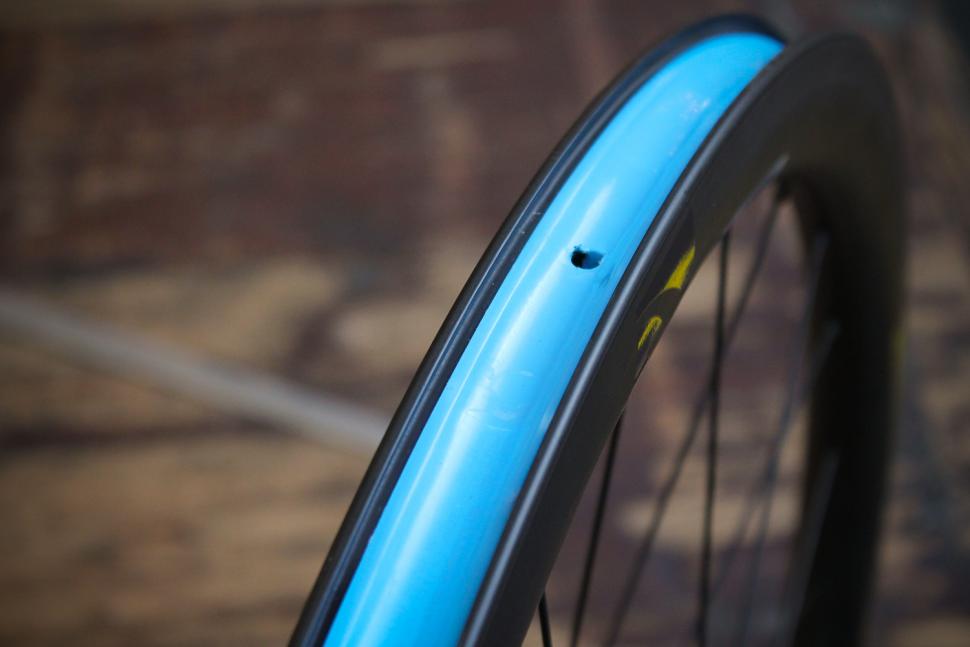
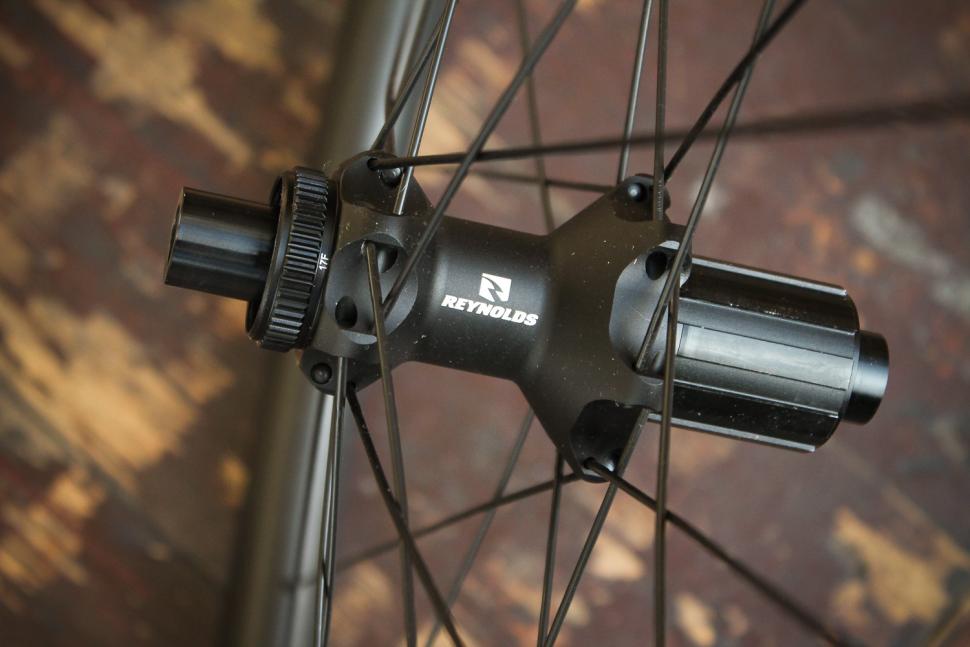
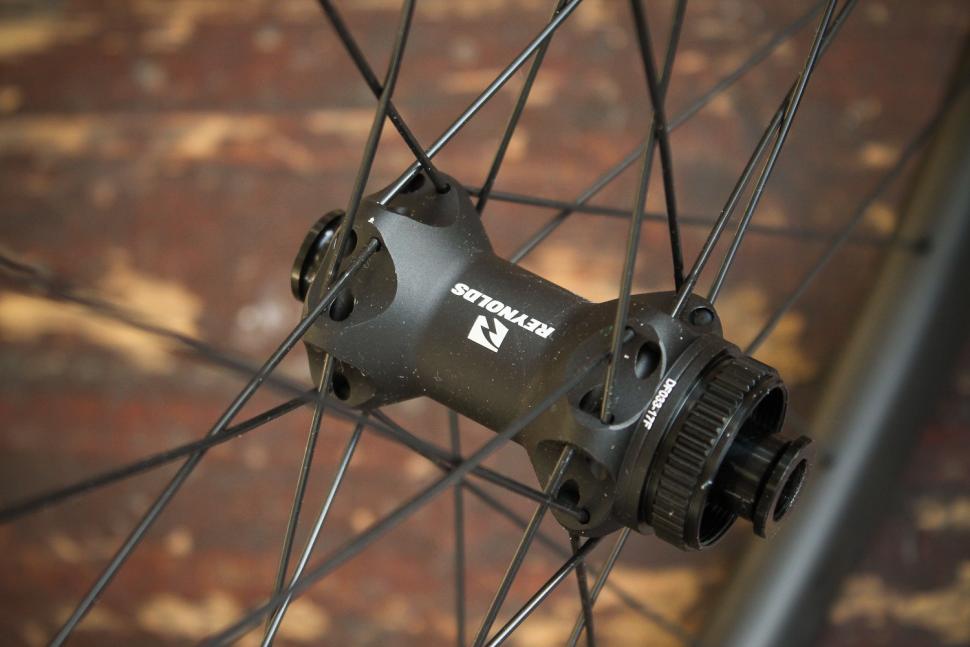
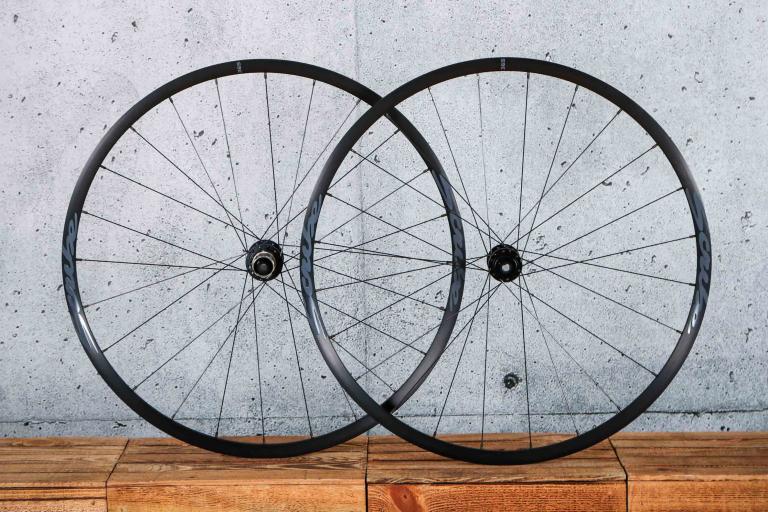
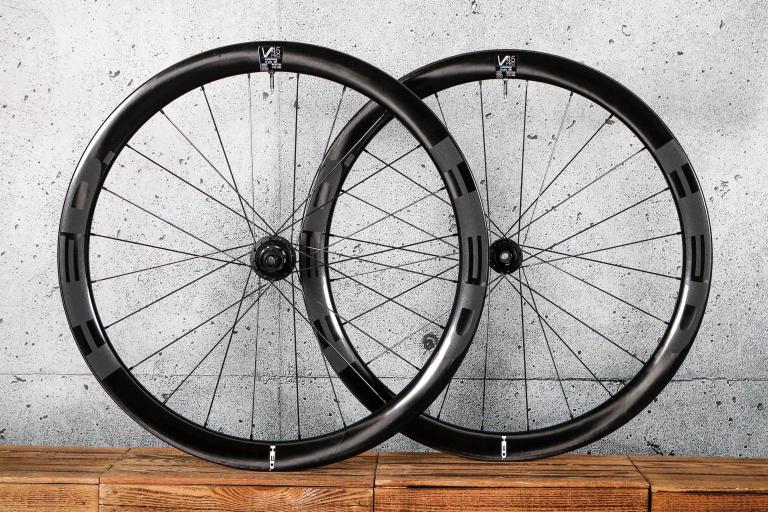
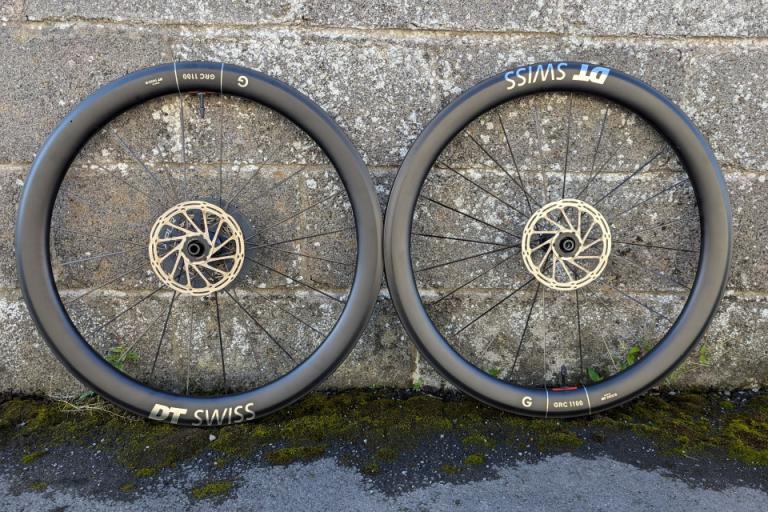
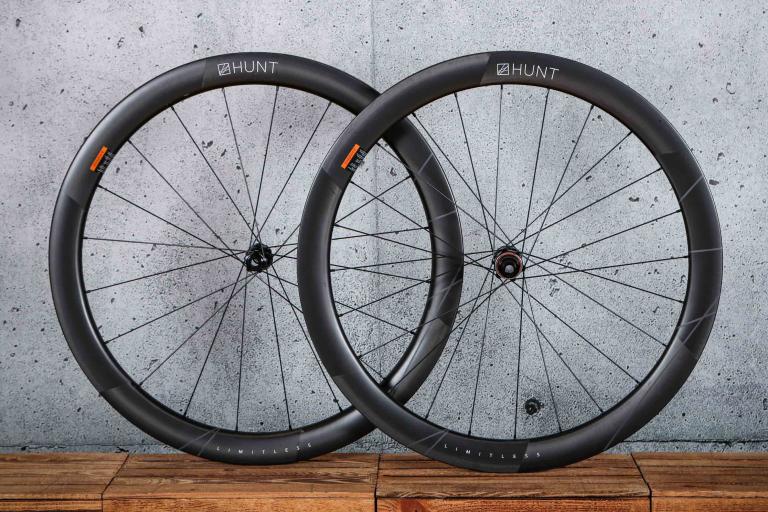
We're living in strange times right now where cycling is getting shoved down our throats every day for no good reason. The most obvious problem is...
Are they sure it hasn't been there since the neolithic? It looks in keeping with e.g. some of the local menhirs? Although the other ones near St....
Car crash in The Butts in Worcester but driver not a scene...
This could catch on: Drivers 'not going out at night' because of bright headlights issue
My Pedros are yellow - I'm a no on them because the design is too chunky. ...
Getting predictable now ...
So something like ...
I'm sold....
Is that justification for murder?
I have recently obtained a SPD axle removal tool from eBay, ali, anodised in blue, wanted orange. I presume it's Chinese made, too much of a...